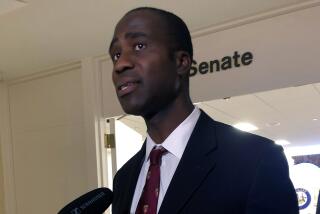Doctors don’t always follow last wishes
- Share via
Doctors frequently made end-of-life treatment decisions inconsistent with the stated wishes of their patients, according to a new study.
Nearly two of three doctors, when presented with hypothetical cases, did not follow their patients’ advance directives -- a written document or oral statement describing the type of treatment a person prefers if he or she becomes too sick to make decisions. Previous research indicates that advance directives have little effect on how doctors ultimately treat patients at the end of their lives.
For this study, based at Loma Linda University School of Medicine, 117 resident physicians and medical school faculty were asked in surveys how they would respond to six hypothetical cases involving end-of-life decisions. In each case, the patient’s wishes conflicted with what the patient’s family wanted, the patient’s likelihood of survival or quality of life factors, forcing the doctors to make a difficult choice.
The medical school professors made medical decisions that conflicted with the patients’ directives 68% of the time, while the residents’ decisions were at odds with patients’ wishes 61% of the time.
The results were published in the July 26 issue of the Archives of Internal Medicine.
Dr. Steven Pantilat, who specializes in end-of-life care at UC San Francisco, said the results did not necessarily reflect the decisions doctors would make in real-life situations, and he noted that the study was small.
*
Kelly Young






